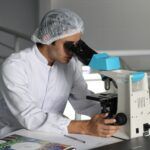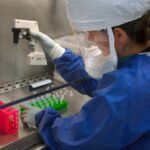CNRS@CREATE, located in Singapore, invites applications for a position as Research Fellow (postdoctoral researcher) in metabolic engineering. The research fellow will be hired by CNRS@CREATE and based in Singapore. Singapore is globally recognized for the excellence of its research, education, innovation. We offer a challenging job which is part of an integrative biotechnology project in an international environment. CREATE ecosystem, involving top rated world universities (MIT, Berkeley, Imperial College,…) is an unique opportunity to merge easily several science fields.
This biotechnological transversal program involves an international collaboration between SynCTI NUS and Biotrans A*STAR in Singapore and Toulouse Biotechnology Institute and Toulouse White Biotechnology in France. The goal of the program is to provide new and more robust microorganisms better adapted for their target applications for the circular bioeconomy. Main themes of the project include: enzyme engineering, gene and genome editing, synthetic biology, regulation engineering, protein production, expression and discovery of bioactive compounds across cell factories, fermentation process.
Job description
To be able to direct the metabolism towards a desired intermediate is a current challenge in the development of efficient cell factories for the bioeconomy. To overcome this challenge, we aim to establish generic rules for catalytic assembly through assessing multi-enzymatic systems, using scaffold libraries and dimerization. Enzymatic spatial organization in vivo will be combined to metabolic pathway regulation. The candidate will primarily work on the design of a enzymes dimerization, based on optogenetic technology and further characterization of the engineered strains.
Responsibilities
- Generate light driven assembly constructions focused on the carotenoids enzymes in E. coli and S. cerevisiae.
- Perform an “in depth” physiological characterization, screening and further optimization of real-time metabolic control assays on an E. coli strain expressing the carotenoids pathway.
- Combine the spatial regulation with the in house existing optogenetics strains and conduct a fine tuning using circuit pulses designs
- Actively participate in the CREATE ecosystem (workshop, seminars,…)
Skills/Qualifications
Candidates should have a PhD degree in biology, biotechnology, bioengineering, or a similar degree with an equivalent academic level. Our ideal candidate has several of the following skills:
- State-of-the-art molecular cloning techniques applied to metabolic engineering and strain design.
- Protein engineering and modelling skills
We expect that the candidate to be an efficient team researcher, have good communication skills, and have a critical approach to formulation and testing of hypotheses.
Specific Requirements
Candidates should have a PhD degree in biology, biotechnology, bioengineering, or a similar degree with an equivalent academic level.







Leave a Reply